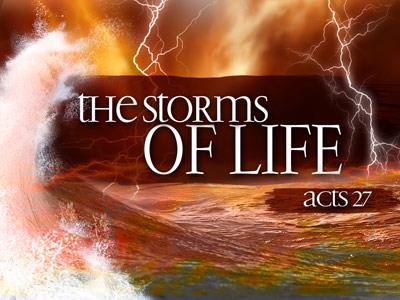-
Elijah’s Depression Series
Contributed by John Lowe on Nov 28, 2017 (message contributor)
Summary: It would be nice to think we Christians didn't have dark days, that discouragement came only to other people, that we can just go ahead and tough it out, that everyone will understand us and help us get through those dark times.
ELIJAH’S DEPRESSION
Today’s message is personal. I must confess that I have been treated for depression for 16-17 years. It is caused by, or so they say, a chemical imbalance in my body. It is a terrible disease and I have said many times that I would rather have some serious physical problem than this awful depression and anxiety. It so happens that I have both to deal with. Medication helps, but they are always there to some extent. Depression is like the common cold. Eventually it touches everyone—even God's people.
It would be nice to think we Christians didn't have dark days, that discouragement came only to other people, that we can just go ahead and tough it out, that everyone will understand us and help us get through those dark times. But looking through the Bible at the great saints—at people we applaud as heroes—we find that they also had bouts with depression, despair and anxiety. If we are to experience all the wonderful benefits of being born again, we must learn how to deal with depression.
The classic example of a depressed person in the Bible is the prophet Elijah, the iron man of the Old Testament, and a faithful servant of God. Elijah lived and served during the days of the wicked King Ahab and his sinister queen, Jezebel, who introduced Baal worship into Israel. That right there would be enough to discourage most people.
Elijah was the champion of the status quo; maintaining tradition and customs. Chosen by God to challenge the king and the prophets of Baal and to call the nation back from apostasy. In a contest on Mt. Carmel, he was God's instrument to prove to Israel that Jehovah was the Lord. But after that amazing victory Elijah sank into the depths of despair. He sat down under a juniper tree and asked God to take his life.
Does that surprise you about a man of God? I hope not. Longfellow said, "Some must lead, and some must follow, but all have feet of clay." We sometimes look upon men like Elijah as super saints. In reality, he was, as the scriptures say, "A man of like passions even as we are." That means he was cut from the same bolt of human cloth as we. He had the same weaknesses, frailties, and emotions as the rest of us. Yes, even Elijah became depressed.
These two experiences, Elijah on Mt. Carmel and Elijah under the juniper tree, are set side by side in the scripture (1 Kings 18-1 Kings 19). In 1 Kings 18, Elijah is at the height of success; in 1 Kings 19 he is in the depths of despair. In 1 Kings 18 he is on the mountain top of victory; in 1 Kings 19 he is in the valley of defeat. In 1 Kings 18 he is elated; in 1 Kings 19 he is deflated. We are all capable of such roller-coaster emotions.
1 Kings 18 records the incredible story of Elijah on Mt. Carmel. He assembled Israel on the mountain and accused them of spiritual schizophrenia. They were "halting"—literally "limping, between two opinions. They could not decide whether to worship God or to worship Baal.
So Elijah challenges the prophets of Baal—all 450 of them—to a theological shoot-out. "I'll call on my God," he says, "you call on Baal, and let's see which one answers with fire from heaven. The one that does will be the God of Israel."
Baal's prophets accept the challenge, set up their altar and began crying to their god. But no fire falls.
"Maybe he can't hear you," Elijah says. Then he suggests that they shout louder. They do, but still no fire falls.
"Is he asleep?" Elijah taunts. "You had better wake him up."
As a final appeal, Baal's prophets slash themselves with knives but that doesn't work either. (I wonder who had that bright idea.) No fire comes. After all this, Elijah builds an altar to the Lord, digs a trench around it, and orders that water be poured over it. In all, twelve barrels of water are poured on it, which soaked the sacrifice through and through and the ditch around it is running over.
Then Elijah prays a simple prayer and God sends fire to consume the sacrifice, the altar and even the water.
With that turning point, the people worshiped the Lord and shouted, "The Lord, he is God. The Lord, he is God." Then, in obedience to Elijah's command, they slaughtered Baal's prophets. It was a high hour. Everyone knew God's hand was upon Elijah.
Elijah is not permitted to relish the mountain-top experience for very long, however. As soon as queen Jezebel hears what happened she sends Elijah a message saying, "You have killed all of my prophets; by this time tomorrow I am going to kill you also." That message would certainly create some tension.

 Sermon Central
Sermon Central



